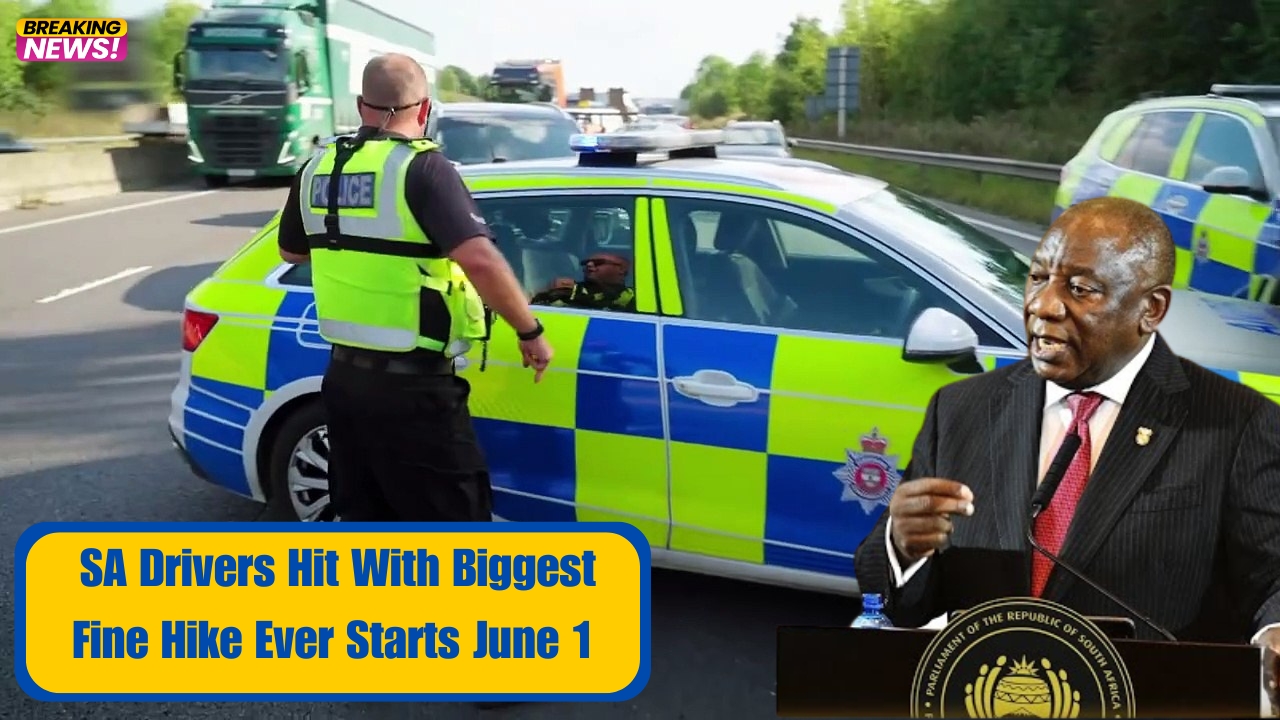From June 1, 2025, South African roads are becoming a more stringent place. The government is introducing new, higher fines for driving offences in a bid to make the country safer and deter dangerous driving.
These reforms are an important move by authorities to cut accidents and ensure proper conduct on the road. Drivers will have to change quickly to avoid high fines and extra legal pressure.
A Costlier Mistake: New Fine Schedule
With the new penalties in place, speeding drivers, drivers without seatbelts, and other rule-breaking motorists will receive sterner punishment. For instance, speeding tickets have increased from R500 to R750, and motorists found driving under the influence of alcohol or drugs are now being penalized R3,000 compared to R2,000 previously.
Comparable hikes target a variety of infractions. Failure to wear a seatbelt now costs R300, and the use of your phone on the road—or indeed any type of inattention behind the wheel—increases from R250 to R400. More significant transgressions such as reckless driving now warrant a R3,750 penalty. The hikes are intended to deter repeat offenders and promote better habits.
Effects on Daily Driving
The revised fine structure is more than a simple legal amendment; it directly influences day-to-day life for motorists. Budgeting for unexpected traffic penalties will be more difficult, and motorists may feel more compelled to adhere tightly to the laws.
Even small errors—such as illicit parking or red-light running—can now attract hefty fines, making routine daily commutes or urban driving more stressful for the masses. The new regulations might disproportionately affect poor drivers, who already struggle to make ends meet in South Africa.
Stay Ahead: How to Prepare
Adjusting to such changes involves staying updated. Drivers must make time to study the new traffic regulations and undergo safety training if there is any. Defensive driving classes can also assist drivers in developing safer practices and avoiding expensive errors.
Younger or new drivers especially need to learn about these tougher rules before taking to the roads. Vehicle maintenance and keeping an ear out for local traffic reports will also help a lot in remaining compliant.
Get the Details You Need
For any further clarification or more specific instructions, the Department of Transport’s website can provide a starting point. Local traffic offices and neighborhood forums are other good sources for up-to-date information and advice.
Motorists are invited to contact formal sources in order to know precisely how these developments could impact them and what actions they can undertake in order not to commit any transgressions. The way ahead might be more challenging, but with foresight and prudence, South African motorists can steer it safer


